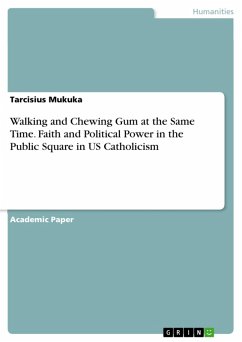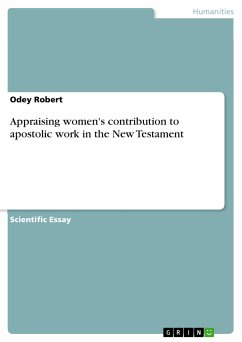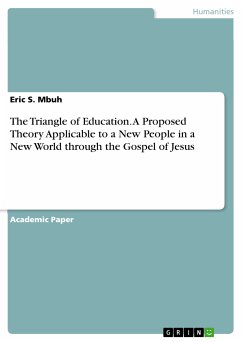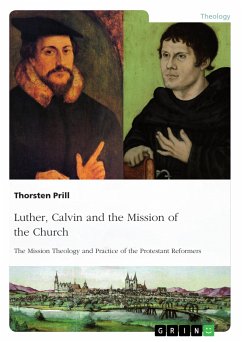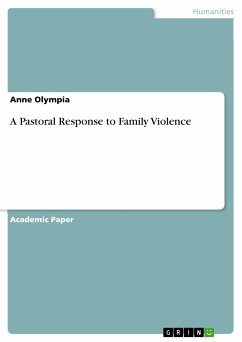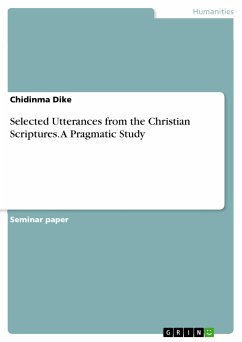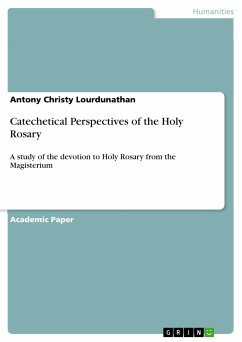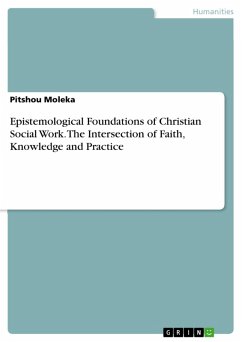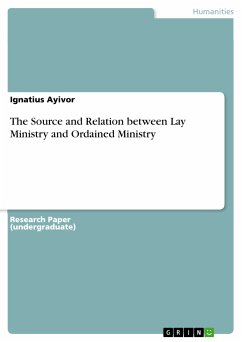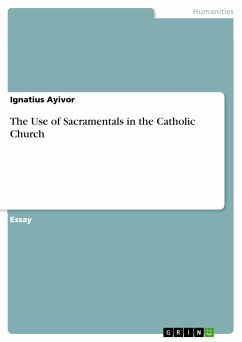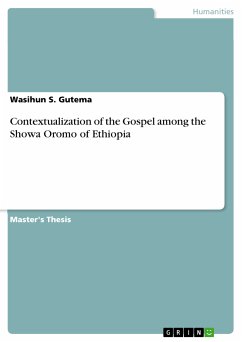
Contextualization of the Gospel among the Showa Oromo of Ethiopia (eBook, PDF)
Versandkostenfrei!
Sofort per Download lieferbar
Statt: 47,95 €**
36,99 €
inkl. MwSt. und vom Verlag festgesetzt.
**Preis der gedruckten Ausgabe (Broschiertes Buch)
Alle Infos zum eBook verschenkenWeitere Ausgaben:

PAYBACK Punkte
0 °P sammeln!
Master's Thesis from the year 2009 in the subject Theology - Miscellaneous, grade: Pass, , course: Final Research paper, language: English, abstract: This research paper is about the contextualization of the Gospel among the Oromo of Showa in Ethiopia. It deals with the culture and language of the people and how gospel contextualization is possible through the culture and language of the given people. It studies the Showa Oromo clan for reference purpose but its principles are applicable to any culture and can be a lesson for anyone who aims at evangelization through the culture and language. ...
Master's Thesis from the year 2009 in the subject Theology - Miscellaneous, grade: Pass, , course: Final Research paper, language: English, abstract: This research paper is about the contextualization of the Gospel among the Oromo of Showa in Ethiopia. It deals with the culture and language of the people and how gospel contextualization is possible through the culture and language of the given people. It studies the Showa Oromo clan for reference purpose but its principles are applicable to any culture and can be a lesson for anyone who aims at evangelization through the culture and language. The research paper consists of three parts including the introductory part. The first part of the research consists of a brief description and analysis of the Showa Oromo and how the Ethiopian Orthodox Church (EOC) failed in here evangelization strategy because of the unawareness of the cultural conditionings of the gospel and inability to preach in the language of the Showa Oromo. This part elucidates the failure of the EOC from different angles and explains that the failure of the EOC is the failure of the other churches too since all belong to the one body of Christ. As a remedy, this section forwards the importance of ecumenism and partnering between the EOC and the Ethiopian Evangelical Church Mekane Yesus (EECMY) as a tool to learn from one another and engage in mission together. The second part introduces the role of the EECMY in contextualizing the gospel to the Showa Oromo through the language and culture of the people. The EECMY contextualized the gospel to the culture of the people making points of contact already found in the traditional Showa Oromo faith. Here the research explains the role of the EECMY in contextualizing the Irreechaa/Showa Oromo thanksgiving into Biblical Christianity. The EECMY used traditional name of god/Waaqayyo in evangelizing the people, which helped the people to come to Christ. The EECMY also gave the people the Bible in their language by contextualizing some pre-Christian Showa Oromo terms into evangelical Christianity and using the words in translation. This section also explains how the EECMY used native language in preaching and teaching the people. The EECMY's incarnational ministry that involved holistic approach is also explained in detail. The third section of the paper deals with the missiology of the Lutheran Church because the EECMY, which this paper explains about, is a Lutheran in tradition and heritage. Here the role of the EECMY in mission and the Lutheran mission theories are elucidated. [...]
Dieser Download kann aus rechtlichen Gründen nur mit Rechnungsadresse in A, B, BG, CY, CZ, D, DK, EW, E, FIN, F, GR, HR, H, IRL, I, LT, L, LR, M, NL, PL, P, R, S, SLO, SK ausgeliefert werden.




